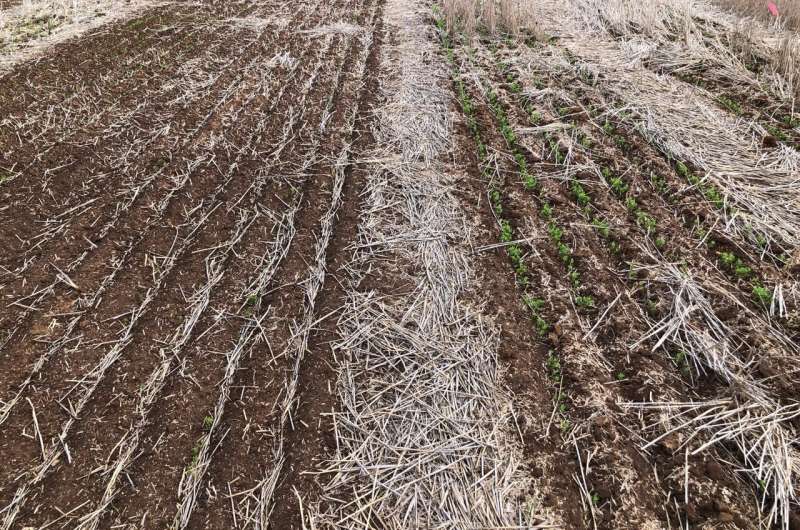Digging deep—value of the soil microbiome unearthed

Researchers in South Australia are digging deep into history of soil biology in the state to gain a better understanding of how the soil microbiome functions to ensure sustainable broadacre farming into the future.
A new article in Advances in Agronomy aims to increase awareness of the importance of soil biology in farming systems, particularly in light of past practices.
Study lead Dr. Andong Shi, South Australian Research and Development Institute (SARDI) senior research officer in the Agronomy group, with colleagues from the University of Adelaide and Flinders University, says it is crucial to understand the effects past changes in land management practices have had on current farming systems to help improve future systems.
"The aim of the article is to increase awareness of the importance of soil biology in farming systems, as it is often ignored, particularly when compared to the traditional soil analysis where the chemical and physical properties are often measured and monitored," says Dr. Shi.
"We hope that by learning from the past, we can harness the benefits of soil microorganisms in sustainable farming practices to help increase soil fertility, reduce environmental footprint and maintain or enhance crop productivity."
The soil microbiome is a collective concept, including all the microorganisms in the soil, living or dead, as well as their metabolites and genetic materials in the close vicinity.
This study is part of a larger soil microbiome project called "Past, present and future drivers of soil change," which is co-led by SARDI's Associate Professor Rhiannon Schilling, with Associate Professor Stuart Roy and Dr. Krista Sumby from the University of Adelaide and Professor Timothy Cavagnaro from Flinders University.
The project also involves Birchip Cropping Group in Victoria, Kalyx Australia in Western Australia and the Thomas Elder Institute.
A core aim of the study is to determine whether the diversity and composition of soil communities from past farming systems differ from those of present farming systems.
To investigate this, soil DNA samples collected over the past 20 years from Southern Australian farms have been analyzed.
The goal is to assess changes in the soil microbiome alongside the evolution of broadacre cropping management practices in the Southern Australian farming zone.
"Our management of soil has a direct influence on shaping how the soil microbiome functions," adds Dr. Shi. "Management practices alter the food source, water availability and accessibility, as well as the shelter for the soil microbiome.
"As a result, the changes in these elements exert feedback on the whole soil ecosystem.
"Therefore, the way that we manage the soil reflects on how healthy the soil ecosystem is, how well it functions, and how productive and sustainable it will be for crop and pasture production in the future."
More information: Andong Shi et al, Chapter Three: Impact of agronomic management on the soil microbiome: A southern Australian dryland broadacre perspective, Advances in Agronomy (2024). . %3Dihub
Provided by SARDI (South Australian Research and Development Institute)



















